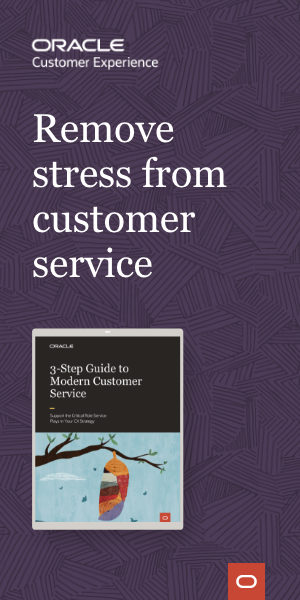UK digital divide is "narrowing" as a result of the pandemic
More people accessed the internet during the past year, but 1.5 million households are still not connected


The percentage of homes in the UK without internet access almost halved during the pandemic, falling from 11% in March 2020 to just 6% in March 2021, according to research from Ofcom.
The regulator's findings suggest more people with "previously limited digital skills" have embraced online shopping, digital banking and video calling during lockdown. Many have also been aided by younger family members acting as 'IT support'.
However, despite more people jumping online during the pandemic, the remaining 6% of the country have felt digital exclusion more acutely. There are still around 1.5 million homes without an internet connection, according to Ofcom, which has caused people to struggle to shop, work and learn during the pandemic.
The demographics that are most likely to be included in the 6% are those aged 65 and above and families on low or no income. Almost half of adults who remain offline said they find the internet too complicated, or it holds no interest for them. However, more than a third of people said a lack of access to equipment is a barrier.
While the research found that all school-aged children had online access at home, 4% relied solely on mobile internet access during the pandemic. Additionally, one in five did not have consistent access to a suitable device to do their remote learning, a figure that increases to a quarter for children from households classed as 'most financially vulnerable'.
RELATED RESOURCE

Three-step guide to modern customer experience
Support the critical role CX plays in your business
"For many people, lockdown will leave a lasting legacy of improved online access and better digital understanding," said Yih-Choung Teh, Ofcom's strategy and research group director. "But for a significant minority of adults and children, it's only served to intensify the digital divide.
"We'll continue to work with the government and other partner organisations to promote digital literacy and ensure that people of all ages and backgrounds are empowered to share in the benefits of the internet."
Sign up today and you will receive a free copy of our Future Focus 2025 report - the leading guidance on AI, cybersecurity and other IT challenges as per 700+ senior executives
Bobby Hellard is ITPro's Reviews Editor and has worked on CloudPro and ChannelPro since 2018. In his time at ITPro, Bobby has covered stories for all the major technology companies, such as Apple, Microsoft, Amazon and Facebook, and regularly attends industry-leading events such as AWS Re:Invent and Google Cloud Next.
Bobby mainly covers hardware reviews, but you will also recognize him as the face of many of our video reviews of laptops and smartphones.
-
 What is Microsoft Maia?
What is Microsoft Maia?Explainer Microsoft's in-house chip is planned to a core aspect of Microsoft Copilot and future Azure AI offerings
-
 If Satya Nadella wants us to take AI seriously, let’s forget about mass adoption and start with a return on investment for those already using it
If Satya Nadella wants us to take AI seriously, let’s forget about mass adoption and start with a return on investment for those already using itOpinion If Satya Nadella wants us to take AI seriously, let's start with ROI for businesses
-
 Welsh startups 'increasingly isolated' over lack of diverse funding routes
Welsh startups 'increasingly isolated' over lack of diverse funding routesNews Founders say Wales' chance to be one of the UK's leading tech ecosystems is being undermined by a lack of investment
-
 What is WCAG and how do these guidelines power accessibility online?
What is WCAG and how do these guidelines power accessibility online?In-depth Experts urge a mentality shift, away from box-ticking compliance, to one that incorporates ease of use into the very fabric of web design
-
 UK gov opens £12m innovation fund to tackle cost of living crisis, regional inequality
UK gov opens £12m innovation fund to tackle cost of living crisis, regional inequalityNews Funding will enable regulators and local authorities to test and experiment with "bold and ambitious" approaches to the pressing issues of the day
-
 Diversity in tech is a well-trodden path, but change is painfully slow
Diversity in tech is a well-trodden path, but change is painfully slowOpinion IT leaders have a big role to play in changing attitudes to diversity and inclusion, but not all of them step up to the challenge
-
 Two in three IT employers struggle to recruit staff with adequate digital skills
Two in three IT employers struggle to recruit staff with adequate digital skillsNews Three quarters (77%) of surveyed senior UK IT decision-makers claimed that they are currently facing a digital skills gap in their organisation
-
 Primary schools to receive BBC micro:bits in digital literacy push
Primary schools to receive BBC micro:bits in digital literacy pushNews The initiative comes amid an "all-time high" shortage of talent in cyber security, big data analytics and technical architects
-
 Lenovo to give £1 from every laptop sale to UK digital poverty charities
Lenovo to give £1 from every laptop sale to UK digital poverty charitiesNews Tech giant to support local authorities and charities with hardware and expertise
-
 Disabled IT professionals are building access for themselves
Disabled IT professionals are building access for themselvesIn-depth For visually impaired developers, the tools just aren’t good enough – so they’re taking matters into their own hands
